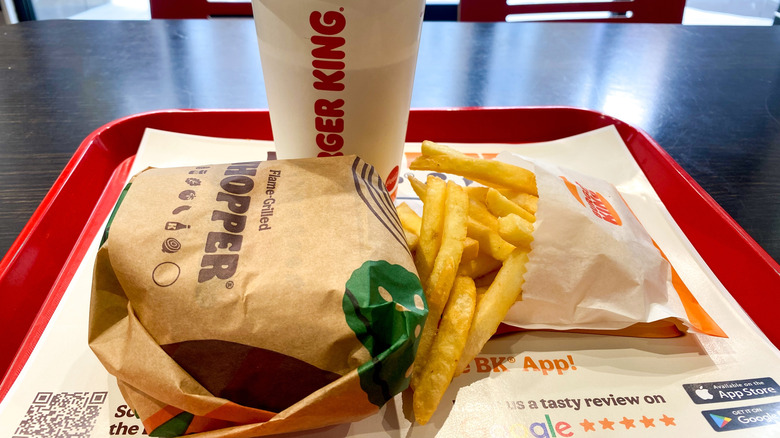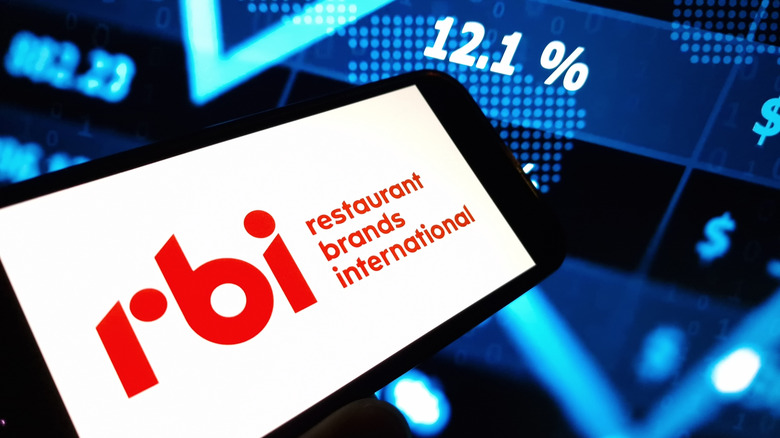The Powerhouse Company Controlling Burger King And 3 Other Major Chains
When you pass a stretch of restaurants like Burger King, Popeyes, Firehouse Subs, and Tim Hortons, it can be easy to assume the chains are all bitter competitors. In reality, the world of fast food is a bit more complicated. It turns out these four chains are actually part of one powerhouse food conglomerate. It's known as Restaurant Brands International, and it's a huge, if little-known, player in the food world over the past few decades.
RBI is a true titan of fast food, overseeing more than 32,000 restaurants in 120 countries and territories worldwide. The iconic Burger King is by far the largest, with nearly 20,000 location currently in operation. It's also the oldest, tracing its roots back to 1954, experiencing a tumultuous rise, fall, and resurgence over the ensuing decades. Beloved Canadian chain Tim Hortons is the second-oldest and biggest, growing to over 6,000 restaurants since its 1964 founding. The merger of these two formerly independent companies in 2014 created the current Restaurant Brands International, forming what was at the time the world's third-largest quick-service food company.
Fast franchise expansion
The company acquired popular fried chicken chain Popeyes in 2017, bringing in nearly 5,000 restaurants and its nearly five decades of down-home, Southern cooking to the mega-corporation. Ultra-successful Firehouse Subs was the last to join RBI, when the Jacksonville, Florida-based company was acquired in 2021. At the time, the sandwich company had recently expanded to around 1,200 locations amid widespread consumer praise.
Although these four companies tally up nearly $45 billion in annual sales, each is independently operated within RBI, and individual franchisees own most locations. This allows the parent company to focus on developing the brands and improving overall company operations. Local franchise owners make many of the day-to-day business decisions for each restaurant.
Consolidation and mergers are nothing unusual in the corporate world. Still, it's worth remembering that these four apparent competitors may not actually be so at the deepest level. But no matter who owns what, it doesn't diminish the convenience or craveability of these fast-food favorites.

